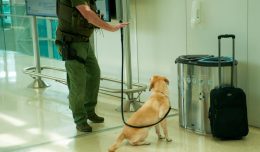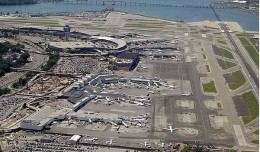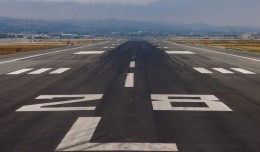Root Metrics, a data company dedicated to helping improve and examine the mobile experience, has released a report on mobile phone speed and reliability at the top 50 busiest U.S. airports. The U.S. is not known for ubiquitous (or cheap) mobile phone service, and often times, performance is absolutely horrendous at major gateway airports. Go ahead, try to use your phone at JFK Terminal 1, see how that goes for you.
The report sheds light on the dismal state of wireless networks at our major airports, and which carriers you are best off with at which airport. We will detail a few airports here, and the full report of all 50 airports can be found here. Overall, Verizon was the best choice at 19 airports, AT&T 17, T-Mobile 1, and Sprint was never the best choice.
New York City
Welcome to Verizon country. Root Metrics crowned Verizon as the winner at JFK, LGA, as well at EWR. At JFK, the final “rootscore” wasn’t even close, with Verizon scoring 87, and AT&T in second place with 66. Although AT&T works well in spots, JFK is a major problem spot for the carrier. While AT&T posted decent speeds, their reliability was terrible when compared to Verizon.
At LGA, Verizon was still king, and AT&T proved to be the least reliable carrier, with Sprint coming in second place. All carriers at LGA, however, preformed better than at JFK.
Meanwhile, at exit 13A on the New Jersey Turnpike, phone service at EWR was significantly better across the board than in Queens. Although Verizon preformed the best overall, all carriers preformed quite well. The most reliable carrier was Verizon with 99.9% reliability, and lowest was T-Mobile with 96.5%.
Los Angeles
Different coast, different results. Out at LAX, AT&T was by far the best carrier, with Sprint in second place, followed by Verizon and then T-Mobile. AT&T download speeds absolutely crushed Verizon 7.9 Mbps to 0.9 Mbps, which is a bad speed for 3G, let alone 4G LTE. You might want to stick to the free WiFi at LAX if you are a Verizon user.
Atlanta
Once again, Verizon and AT&T were at the top of the list, but what’s more interesting is what was going on at the bottom of the list. Travelers with Sprint may want to seek out the nearest payphone or wifi hotspot while at ATL. With download speeds of 0.5 Mbps, and upload speed of 0.1 Mbps, sending that awesome filtered shot of a 747 on Instagram may take a while, if it works at all.
Chicago
There is some good news for travelers waiting for long-delayed flights at ORD. Although your flight might be late, your mobile data will be right on time. Root Metrics declared both AT&T and Verizon the winner, both sporting high data speeds and near perfect reliability. At least something works well at ORD.
Why So Unreliable and Unpredictable?
If there is one thing people do more than anything else at airports, it is use their phones. Travelers are relying on airline smart phone apps now more than ever, and using phones just to pass the time. Cellular networks don’t run on magic, it takes a significant amount of infrastructure to get that signal to your smartphone. One of the biggest hurdle cell carriers face in improving service at airports is finding space to install their cell sites. At many airports, you might find parking garages covered in antennas pointing into the terminals. With this method, however, the further into the terminal you go, the lower the signal will get.
To get that precious signal inside the terminal, some airports install what is known as a DAS network, or distributed antenna system, says Root Metrics. “A DAS increases coverage and reliability by distributing signal strength within a structure. It’s basically a set of small antennas that are spread out through a structure and connected by fiber back to a base station. These distributed antenna nodes fill in dead spots and gaps in coverage and add increased capacity to a network.” Airports in the U.S. generally seem to be lacking such networks, and reliability suffers as a result.
At Houston’s George Bush Intercontinental Airport, a DAS network was installed, phone service there is generally outstanding. At Detroit Metropolitan Airport, a new DAS will be coming online next month, with Verizon and AT&T signed up to participate and additional carriers to follow. This investment, which is offset by lease agreement with carriers, vastly improves the passenger experience in the terminal by providing robust communications. Back at JFK, it is a bit more complicated to install such a network. Each terminal is operated by private companies, who would each have to agree to install a network on their own.
Conclusion
If the Root Metrics report showed us anything, its that no one carrier is the best everywhere. While you can’t always be guaranteed the best performance, you certainly get what you pay for. AT&T and Verizon charge a premium for their service, and they crushed their cheaper competitors nationwide. If you find yourself at an airport with terrible mobile data, wait until you are in the air, your in-flight wifi may just preform better.








